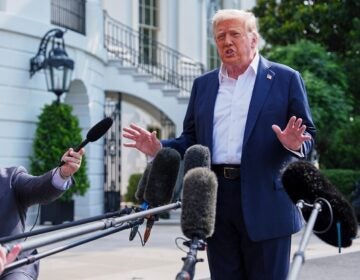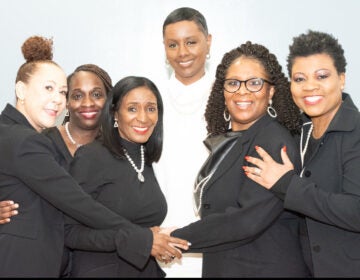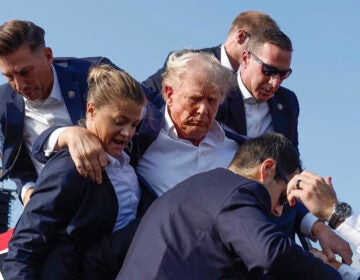A personal remembrance of 9/11.
September 11, 2001 was a Tuesday, just like September 11, 2012, and it was a beautiful sunny day, just like September 11, 2012, with hardly a cloud in the brilliant blue sky. I was driving to Temple Law School in Philadelphia to teach a morning class. Stopped at a red light on Broad Street in front of the law school, I heard the first radio report that smoke was coming out of one of the World Trade Center towers which had apparently been hit by an airplane.
I thought that was odd, to happen on such a clear day, and that planes ought to be banned from flying near skyscrapers. I parked my car and proceeded to my class, where students informed me and each other of what they had heard, that a second plane had hit the second tower, that the Pentagon and perhaps the State Department had been attacked in Washington, D.C., and that commercial aircraft were missing and believed hijacked.
Still not comprehending the scope of the tragedy, I proceeded to start teaching my class on Citizenship and Immigration Law, though I did tell the class that if foreigners were responsible for these attacks, we could expect big changes in U.S. immigration law and practice.
About halfway through my class Assistant Dean Esten and then Associate Dean Epps walked into my class and announced that all classes were cancelled immediately. They told us what they knew, that one of the World Trade Center towers had collapsed killing many, that the Pentagon had indeed been attacked, and that there were reports of an airplane crash in western Pennsylvania. They said that because no one knew exactly what was happening, or the scope of the attacks underway, everyone should feel free to leave the law school and return home or to their families.
That made sense to me, and I dismissed the class after suggesting that they consider any immigration implications of what was happening that morning. I drove home to Delaware where I turned on the television and for the first time saw the unbelievable pictures of what was happening in New York and at the Pentagon.
News reports urged people not to make telephone calls to New York to keep the lines open for emergency use. That seemed like a reasonable request, and I resisted the urge to call our older daughter who was a medical student at New York University, knowing that the medical school was mid-town, not downtown. My wife came home from work, and our younger daughter came home from high school, and we watched TV and discussed what we were seeing.
Our older daughter called home and reported that her group of medical students had been assigned to do triage at the emergency room of Bellevue Hospital which expected to be overwhelmed with casualties from downtown. But they waited all day without seeing the anticipated flood of patients. It gradually became clear that there were relatively few injuries because so many had died at the World Trade Center.
Like most Americans, I was shocked and angry, and ready to support our government in whatever action it decided to take to protect the country and strike back at those who attacked us. No one knew if there would be more attacks the next day, or the next week, or the next month.
Cooler heads than mine urged us not to let fear drive us to actions we would later regret. In hindsight, they were right. The invasion of Iraq in 2003 proved to be the most misguided of all our fearful responses to the 9/11 attacks.
And I was mostly wrong in my prediction of big changes in U.S. immigration law and practice in response to the terrorist attacks of foreigners. Although there have been many changes, the basic framework of the U.S. immigration system remains surprisingly similar to how it was before that sunny morning in September.
WHYY is your source for fact-based, in-depth journalism and information. As a nonprofit organization, we rely on financial support from readers like you. Please give today.




